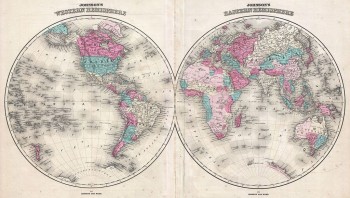Appiah’s writings on cosmopolitanism give an interesting insight to the way we interact with the world. As we interact with other people, we should not have an attitude of globalism or nationalism, but of cosmopolitanism.
Viewing the world as a nationalist restricts us and keeps us from learning and understanding the human race as a whole. Nationalism can limit our experiences. Crude globalism, on the other hand, can keep us from appreciating our own cultures. It does not allow us to understand the patterns that affect our own actions.

Cosmopolitanism gives a middle path between these two opposite ideas. Cosmopolitanism includes the ideas that: 1) we have obligations to others, 2) there is value in particular human lives, not just human life in general, and 3) we need to develop habits of coexistence. As we take on the views of cosmopolitanism, we will be able to experience the world more fully. We can better understand the lives of the people close to us, as well as cultures that may seem foreign.

When we adopt a more cosmopolitan way of thinking, it will allow us to learn more and be better people. Our interactions with others will be improved because we will have made the effort to accept others while staying true to ourselves.
